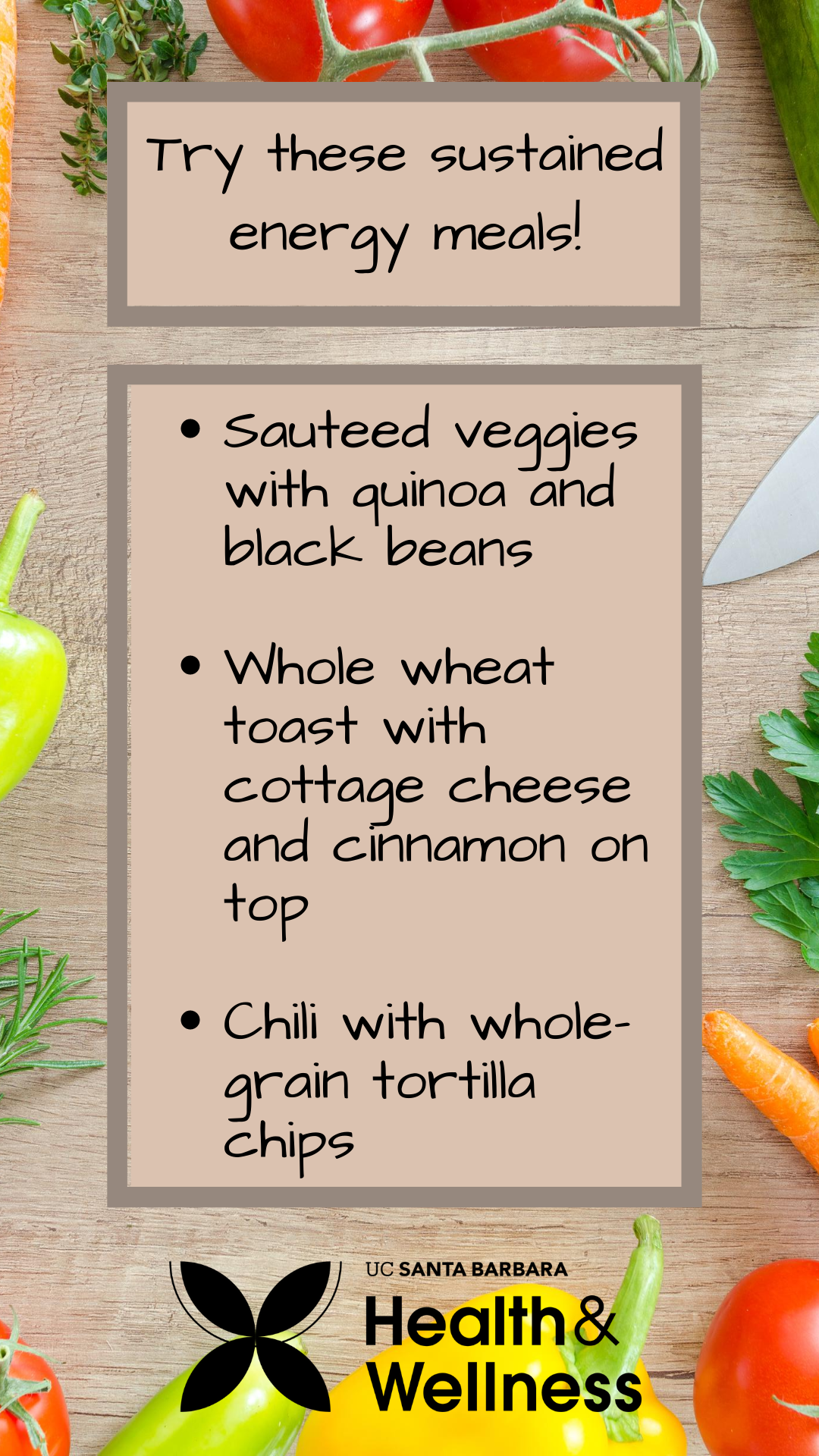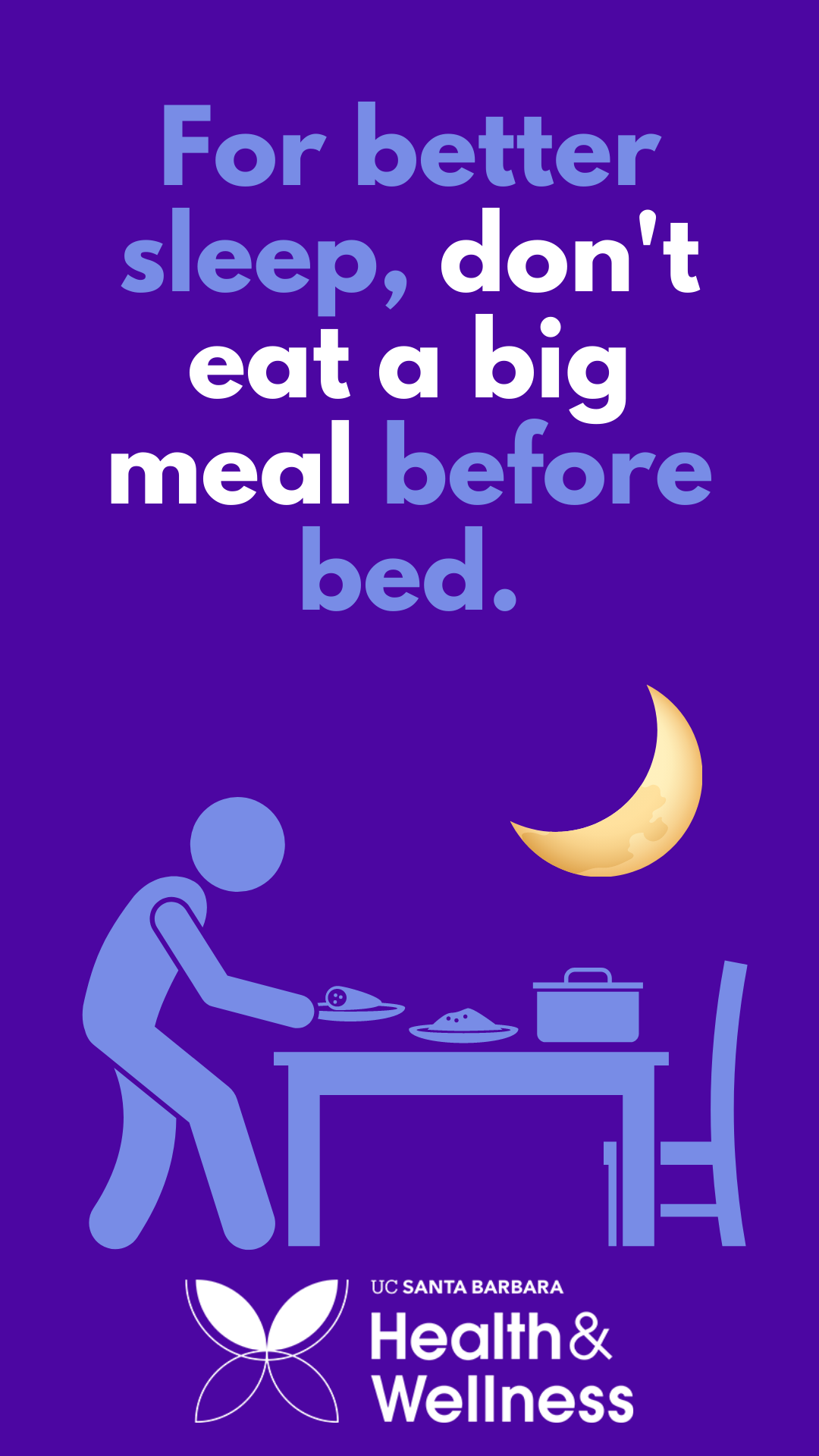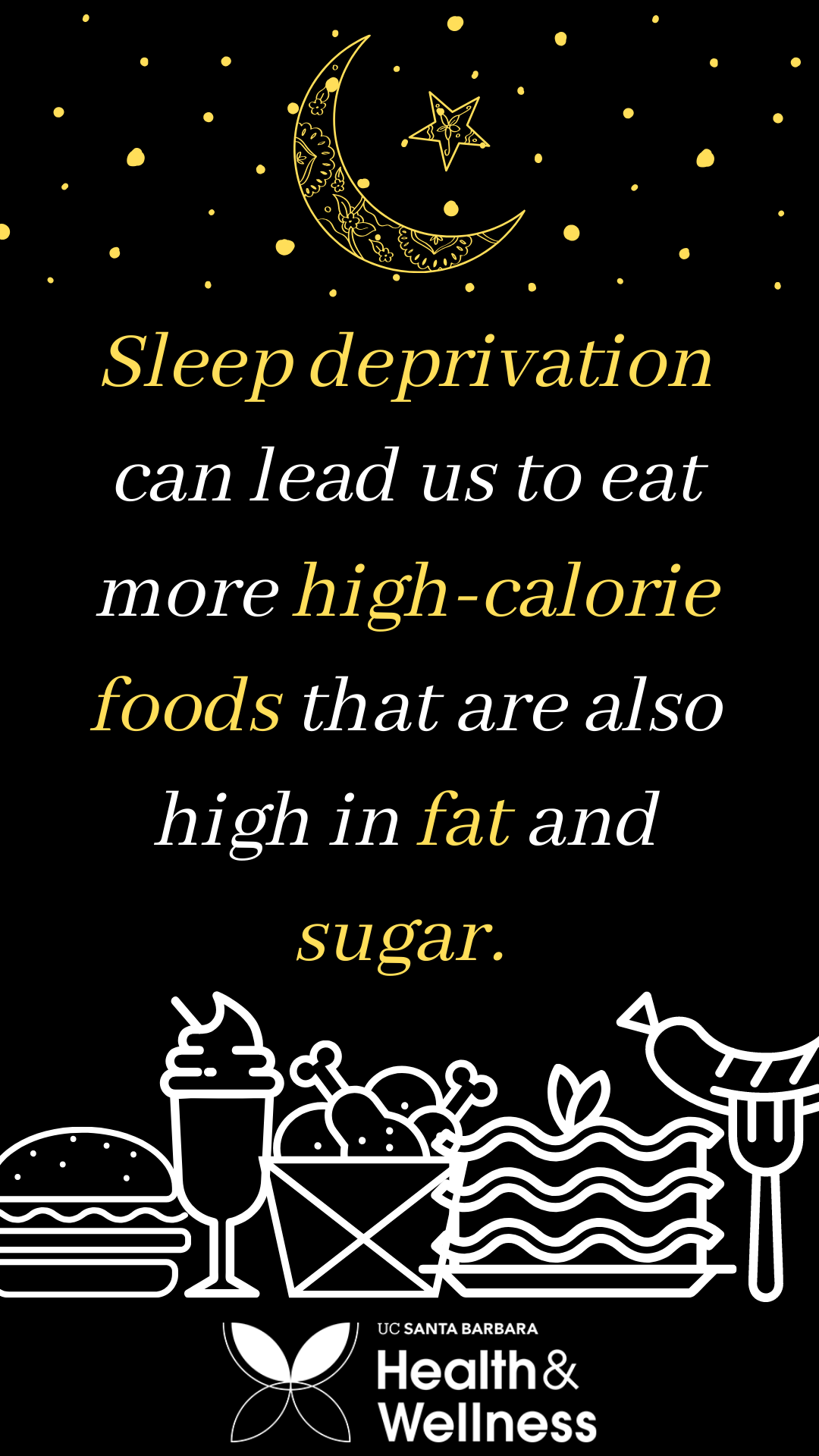
The first thing many people might think of when considering the relationship between food and sleep is caffeine. Or more specifically, something along the lines of chugging an entire Yerba Mate before you go to bed will not be great for your sleep. Yet, many people don't consider how other, non-caffeinated food items, have a huge impact on our sleep as well! Knowing how these choices affect your body can help you make the right decisions when looking for fuel to stay alert during the day and get enough sleep at night!
Tip #1 Combining protein with a complex carbohydrate is best to support consistent energy during the day and restful sleep at night.
(Wurtman et al., 2003)
It turns out that the source of our calories can influence wakefulness. Some foods contain amino acids that can energize or relax us. A common amino acid that we know to be involved in sleep patterns is tryptophan, a precursor for the neurotransmitter serotonin and the hormone melatonin. Melatonin is a hormone that increases sleepiness. Our bodies naturally produce melatonin, but its amino acid precursor is also found in common foods
(Afaghi, O'Connor, & Chow, 2007; St-Onge, Mikic, & Pietrolungo, 2016; Wurtman et al., 2003).
All protein sources contain some tryptophan. Foods that are particularly high in tryptophan include poultry, fish, eggs, and cheese. However, proteins do not have a relaxing effect on the body because they contain many other amino acids as well.
Proteins are made of very small, organic compounds called amino acids. We eat protein so we can use its amino acids for vital processes within our bodies, such as building muscle and synthesizing hormones and neurotransmitters. Protein contains high levels of the amino acid tyrosine, which is used to synthesize the neurotransmitters norepinephrine and dopamine. Norepinephrine is associated with arousal. Dopamine has a role in wakefulness and can also decrease the synthesis of melatonin. Protein does not raise energy levels directly but it is a precursor to hormones that will. In this way, protein can help with focus and concentration.
Tip #2 For sustained energy during the day, avoid meals with no protein and high in refined carbohydrates.
(Wurtman et al., 2003)

Refined carbohydrates are refined grains that have been stripped of bran, fiber, and some nutrients (ex. pastries, white rice or white bread). When eaten without fiber or a source of protein or fat, these digest quickly and their high glycemic index causes unhealthy spikes in blood sugar levels which triggers a surge of insulin to clear the sugar from your blood.
Insulin removes competing amino acids from the blood but leaves one behind: tryptophan. Once tryptophan reaches the brain, it is converted to serotonin, a neurotransmitter that is essential for sleep. Low levels of other amino acids in the blood allow tryptophan to enter the brain more easily, increasing total levels of serotonin which can lead to sleepiness.
Meals that are high in refined carbohydrates can make you feel sleepy, but not right away. The tryptophan amino acid ratio peaks around 2-4 hours after consumption. Have you ever fallen asleep in one of your afternoon lectures? A lunch high in carbohydrates coupled with the natural rhythms of the circadian process, aid in that sluggish feeling you might know as the “post-lunch dip,” a temporary lull in alertness in the afternoon, often hitting a low around 3 pm.
Consuming meals high in refined carbs boosts serotonin which aids in sleepiness, so this is not a good strategy to promote wakefulness during the day. Eating a meal of refined carbs (ex. a bag of chips, a bowl of sugary cereal, waffles with syrup, fries with ketchup etc.) can lead to an energy crash as well as long term negative effects of elevated insulin repeatedly. This is why combining protein with a complex carbohydrate (whole grains, fiber rich fruits, starchy vegetables and beans) is best to support consistent energy during the day while providing the precursors for melatonin to induce sleepiness at night. Try snacking on an apple with greek yogurt, whole grain bread with hummus, avocado or turkey deli meat, and oatmeal with protein powder or nut butter (opt for rolled oats as they have a lower glycemic index than instant).

Tip #3 Wrap up your last meal 4 hours before bedtime
(Crispim et al., 2011; Afaghi, O'Connor, & Chow, 2007).
When we get into bed, our body should be focusing on falling asleep, not digesting food. There is evidence that eating late in the evening makes it harder to sleep, especially if the food is high in fat and sugar. Eating this type of food near the time you’re going to fall asleep has been associated with increased sleep latency (time taken to fall asleep), more arousals, and less time spent in REM sleep.
Large heavy meals before bedtime (ex. a pizza or burger) are also not recommended, since they can lead you to toss and turn in bed while your digestive system processes the food. When we are digesting our food, increased gastric volume leads to greater physical discomfort. Laying down while digesting can also contribute to acid reflux and heartburn. This discomfort in the lower chest area happens when stomach acid flows back up the esophagus.
It’s best to wrap up your last meal around 4 hours before bedtime to give your body enough time to digest food before sleep.
Tip #4 The best bedtime snack is high in fiber, easy to digest and low in saturated fat, sugar and animal protein (ex. oatmeal or whole grain toast).
(St-Onge, Roberts, Shechter, & Choudhury, 2016; St-Onge, Mikic, & Pietrolungo, 2016)
Although it is important to give your body enough time to digest before heading to sleep, we also don’t want to go to bed so hungry that the physical discomfort of being hungry keeps us up.
Foods that are low in fiber and high in saturated fat and sugar have been associated with lighter, less restorative sleep with more arousals. Avoid animal protein before bed as it takes extra work for your body to digest, including higher stomach acid to break it down. Laying down can cause acid reflux to start which creates physical discomfort and takes away from the wind down cycle your body should be prioritizing before bed. During sleep, your organs should be resting and the liver detoxifying, not working hard to turn that late night pizza into caloric energy.
If you didn’t have enough for dinner and are hungry in the evening, opt for light snacks that don’t tax your digestive system and are not high in fat and sugar. Foods that have been shown to have sleep-promoting effects are milk products, fish, fruit and vegetables. Here are a few yummy bedtime snack ideas: a small cup of low-fat yogurt with whole grain sugar-free granola, veggies with hummus, sliced apple with nut butter or whole grain seed crackers!
Not only do our food choices influence our sleep quality, but getting enough sleep can also influence our eating habits. Sleeping shorter hours has been shown to impact levels of activity in the brain and hormones in the body, leading us to crave foods that are higher in carbohydrates and sugar.
Sleep deprivation significantly changes activity in regions of the brain that evaluate appetite and is associated with an increase for the desire to gain weight and eat high-calorie foods. Following sleep deprivation, the frontal cortex and insula cortex decrease in activity. These two regions are involved in evaluating food choices and desirability. The amygdala, which governs the motivation to eat, increases in activity. These combined changes in brain activity debilitate our ability to evaluate our food choices and promote the consumption of high-calorie foods also high in fat and sugar. Restricted sleep also causes levels of the appetite-regulating hormone, leptin, to fall - increasing appetite.

Tip #6 Foods that can tax or upset your stomach and digestive system should be avoided before sleep (Crispim et al., 2011).
Article 1: https://www.ncbi.nlm.nih.gov/pmc/articles/PMC4702189/
St-Onge, M. P., Roberts, A., Shechter, A., & Choudhury, A. R. (2016). Fiber and saturated fat are associated with sleep arousals and slow wave sleep. Journal of Clinical Sleep Medicine, 12(1), 19-24.
Article 2: https://jcsm.aasm.org/doi/full/10.5664/jcsm.1476
Crispim, C. A., Zimberg, I. Z., dos Reis, B. G., Diniz, R. M., Tufik, S., & de Mello, M. T. (2011). Relationship between food intake and sleep pattern in healthy individuals. Journal of Clinical Sleep Medicine, 7(6), 659-664.
Article 3: https://www.researchgate.net/publication/6519512_High-glycemic-index_carbohydrate_meals_shorten_sleep_onset
Afaghi, A., O'Connor, H., & Chow, C. M. (2007). High-glycemic-index carbohydrate meals shorten sleep onset. The American journal of clinical nutrition, 85(2), 426-430.
Article 4: https://www.ncbi.nlm.nih.gov/pmc/articles/PMC2615460/
Nedeltcheva, A. V., Kilkus, J. M., Imperial, J., Kasza, K., Schoeller, D. A., & Penev, P. D. (2009). Sleep curtailment is accompanied by increased intake of calories from snacks. The American journal of clinical nutrition, 89(1), 126-133.
Article 5: https://academic.oup.com/aje/article/164/10/947/162270
Patel, S. R., Malhotra, A., White, D. P., Gottlieb, D. J., & Hu, F. B. (2006). Association between reduced sleep and weight gain in women. American journal of epidemiology, 164(10), 947-954.
Article 6: https://www.sleephealthjournal.org/article/S2352-7218(16)30087-0/fulltext
Prather, A. A., Leung, C. W., Adler, N. E., Ritchie, L., Laraia, B., & Epel, E. S. (2016). Short and sweet: Associations between self-reported sleep duration and sugar-sweetened beverage consumption among adults in the United States. Sleep Health, 2(4), 272-276.
Article 7: https://www.ncbi.nlm.nih.gov/pmc/articles/PMC3763921/
Greer, S. M., Goldstein, A. N., & Walker, M. P. (2013). The impact of sleep deprivation on food desire in the human brain. Nature communications, 4(1), 1-7.
Article 8: https://www.ncbi.nlm.nih.gov/pmc/articles/PMC5015038/
St-Onge, M. P., Mikic, A., & Pietrolungo, C. E. (2016). Effects of diet on sleep quality. Advances in Nutrition, 7(5), 938-949.
Article 9: https://academic.oup.com/ajcn/article/77/1/128/4689642
Wurtman, R. J., Wurtman, J. J., Regan, M. M., McDermott, J. M., Tsay, R. H., & Breu, J. J. (2003). Effects of normal meals rich in carbohydrates or proteins on plasma tryptophan and tyrosine ratios. The American journal of clinical nutrition, 77(1), 128-132.

This work is licensed under a Creative Commons Attribution 4.0 International License.